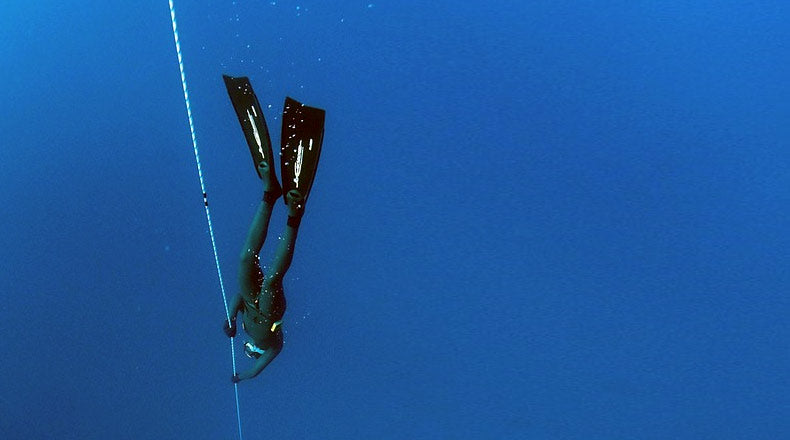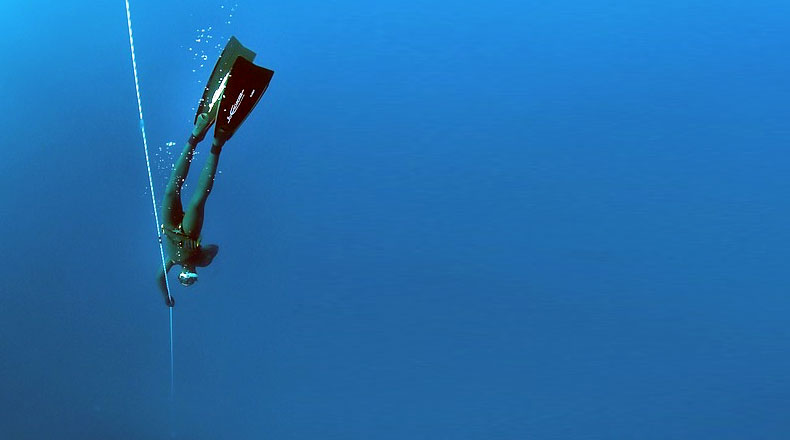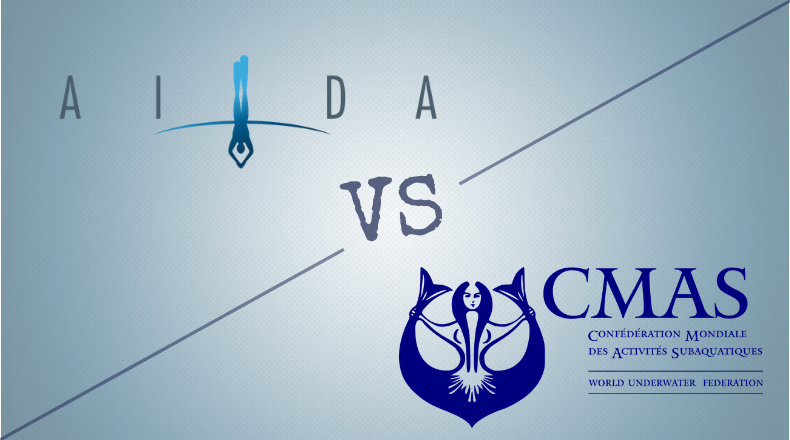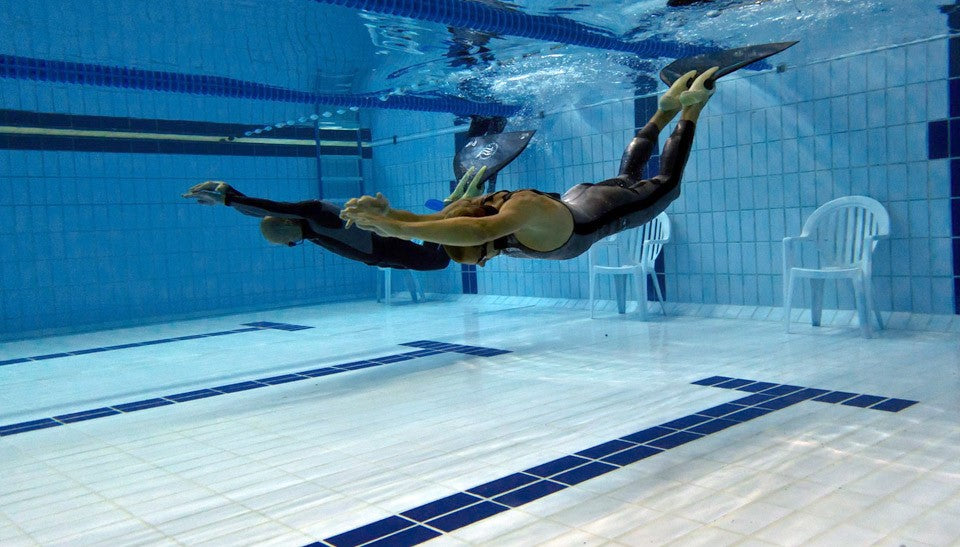Scuba vs. Freediving or Why You Should Ditch the Tank

Hundreds of years ago, before any rudimentary diving equipment was invented, human beings have been exploring the ocean’s depths with nothing but one gulp of air. In fact, even nowadays, when modern scuba gear is readily available, freediving (breath-hold diving) only grows in popularity. So why do people freedive, if they can simply put a tank on their back and stay down for much longer? Well, the reasons are numerous, and they are not the same for everyone. So, let’s look at some similarities and differences between scuba diving and freediving, and try to understand how the two activities complement each other.
Differences
The most obvious difference between scuba and freediving is breathing. Scuba divers are taught to never hold their breath underwater due to the risk of lung overexpansion. Freedivers, on the contrary, hold their breath throughout the entire dive. Because they don’t inhale additional air underwater, its volume in freedivers’ lungs is never greater than it was on the surface. Similarly, recreational freedivers don’t have to worry about safe ascent rates, no-decompression limits, or making safety stops, as their bodies don’t absorb additional nitrogen underwater either. Keep in mind though, more caution needs to be exercised when performing deep (over 100 feet) repetitive freedives, as they eventually may cause DCS symptoms.
Another major thing that sets the two activities apart is that freediving is much less dependent upon equipment than scuba diving. While freedivers can use a mask, snorkel, wetsuit and fins, none of this equipment is mandatory. Thanks to this many people feel that freediving comes more naturally and offers a more personal experience with the underwater world.
One more distinction worth mentioning has to do with the purpose, the ultimate goal of pursuing the activity. Recreational scuba diving is mostly done for leisure with an aim to explore the underwater world and enjoy the aquatic environment. Freediving, on the other hand, opens a wider range of experiences - it does, not only allow you to get closer to many marine animals and connect to the ocean as a whole, but also takes you on a journey of inner exploration. Freediving urges you to challenge yourself and push your personal limits. As the world champion freediver, Umberto Pelizzari once nicely put it, “The scuba diver dives to look around. The freediver dives to look inside.”
Similarities
Even with a few differences, scuba diving and freediving have more in common than one might think. In fact, if you are a scuba diver, you may find yourself surprisingly well-prepared for freediving and vice versa. There are some skills and techniques that both freedivers and scuba divers need to master. First and foremost, they need to be comfortable and confident in the water. The ability to be relaxed and move calmly is also crucial. It helps freedivers to minimize their oxygen use, and scuba divers to avoid strain and/or even panic.
Another good example is pressure equalization. Just like scuba divers, freedivers need to compensate for the pressure increase in their ears, sinuses and mask during descent to avoid barotraumas. Moreover, because their descents are more rapid, freedivers often learn to use different, more efficient equalization methods.
Finally, various respiration techniques that freedivers use to extend their dives can come in handy in scuba diving as well. They can help to relax before the dive and reduce the diver’s air consumption rate.
Why You Should Try Freediving
Whether you are looking for a new way to explore the underwater world, want to challenge yourself or improve your scuba diving skills, freediving can be a great way to achieve this. Although the sport is pretty complex and requires a lot of knowledge and practice to make the steady progress, it is also very rewarding for many different reasons. Here are a few of them:
- Freediving teaches you a lot about your body and breathing. You can challenge your mental and physical abilities, surpassing what you thought would be impossible for you to achieve.
- Freediving urges you to lead a healthier lifestyle. You become more conscious of what you eat and how you exercise.
- You learn to become more relaxed, stay cool in stressful situations and increase your mental strength not only when diving, but also in everyday life.
- Freediving allows the diver to feel the freedom of movement that you just don’t get with all of the scuba gear on.
- Freediving can help you to become a better scuba diver. You can learn different breathing, equalization and relaxation techniques.
- Many marine animals are easier to see and get close to when you don’t exhale bubbles.
- You don’t need to bring as much gear with you when travelling, if you only plan to freedive.
- If you have fears of water, depth or drowning, freediving is a great way to overcome them. You can gradually get comfortable in the water, learn to accept and observe your fear, as well as stay in control and confident in your abilities.
- Freediving is an activity for all ages, you can pursue it as a challenging sport or a way to reconnect with nature and yourself.
All in all, freediving is a very interesting and unique activity, that is definitely worth exploring. Go ahead, try it, and see for yourself!
P.S. Although almost anybody can try freediving, remember, the most effective and safe way to do it is with a professional instructor.




